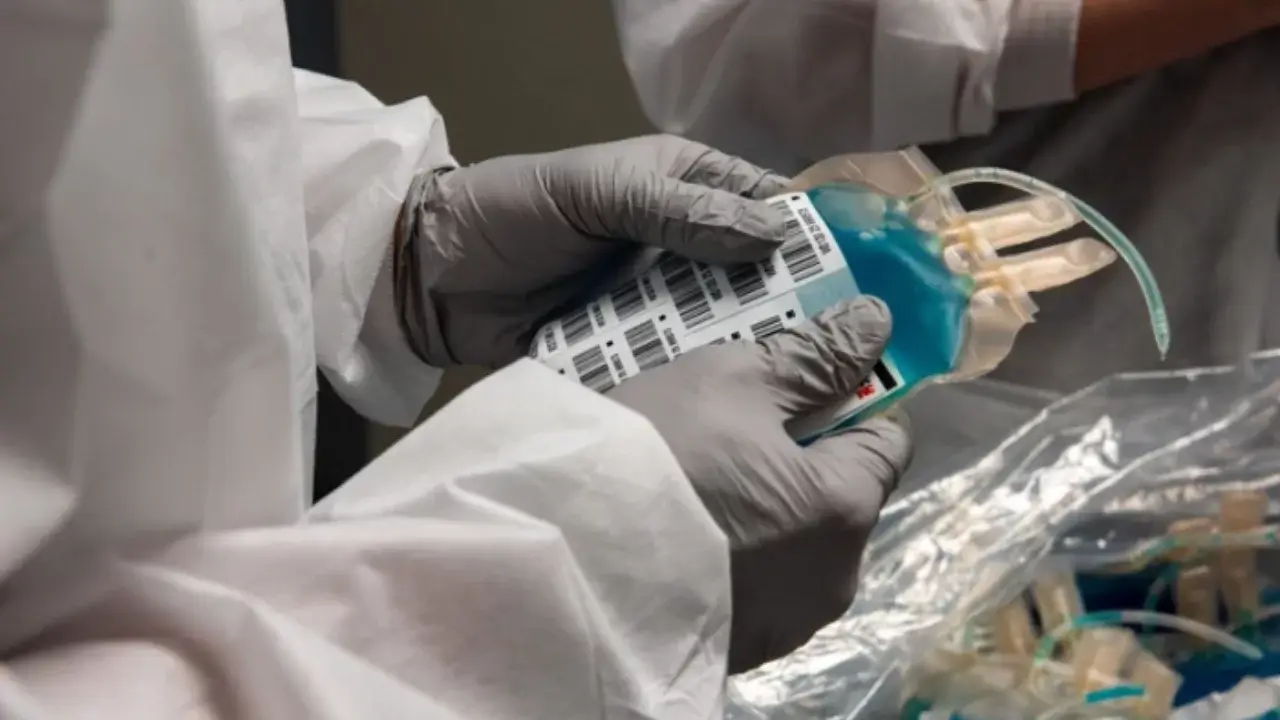The Pentagon has developed "smart" blood for use in battles

The U.S. Defense Advanced Research Projects Agency (DARPA) has announced the Smart-Red Blood Cells (Smart-RBC) program, which gives new life to human blood cells. This project is aimed at developing modified red blood cells using advanced technologies in the field of synthetic biology.
According to Defence Blog, the main goal of the Smart-RBC program is to create "smart" blood cells with biological schemes that can detect physiological signals, make quick and effective decisions, and respond to them effectively. It is planned that these types of cells will help maintain the body's vital functions in severe and dangerous conditions, ensure blood integrity, and enhance a person's chances of survival during injury or stress.
According to DARPA, Smart-RBC cells perform three main functions: correctly identifying biomarkers, making quick and rational decisions based on information, as well as producing important molecules that affect metabolic and physiological states. Preliminary studies are aimed at maintaining physical stability and enhancing the process of blood clotting (hemostasis). In the future, Smart-RBC will have the capabilities of thermoregulation, universal blood compatibility, and effective operation at high altitudes.
The project is designed for 36 months and consists of two 18-month stages. At the first stage, researchers must prove the feasibility of integrating synthetic schemes in the differentiation process of stem cells and preserving their functionality in mature red blood cells. The second stage involves improving the systems, testing their effectiveness, and demonstrating them in real conditions.
Currently, the Smart-RBC project is in the initial stages of implementation, aimed at significantly improving the body's ability to survive, endure, and adapt to difficult and dangerous environments. This also demonstrates that the Pentagon is investing heavily in advanced and strategic research in the field of synthetic biology.
The U.S. Defense Advanced Research Projects Agency (DARPA) has announced the Smart-Red Blood Cells (Smart-RBC) program, which gives new life to human blood cells. This project is aimed at developing modified red blood cells using advanced technologies in the field of synthetic biology.
According to Defence Blog, the main goal of the Smart-RBC program is to create "smart" blood cells with biological schemes that can detect physiological signals, make quick and effective decisions, and respond to them effectively. It is planned that these types of cells will help maintain the body's vital functions in severe and dangerous conditions, ensure blood integrity, and enhance a person's chances of survival during injury or stress.
According to DARPA, Smart-RBC cells perform three main functions: correctly identifying biomarkers, making quick and rational decisions based on information, as well as producing important molecules that affect metabolic and physiological states. Preliminary studies are aimed at maintaining physical stability and enhancing the process of blood clotting (hemostasis). In the future, Smart-RBC will have the capabilities of thermoregulation, universal blood compatibility, and effective operation at high altitudes.
The project is designed for 36 months and consists of two 18-month stages. At the first stage, researchers must prove the feasibility of integrating synthetic schemes in the differentiation process of stem cells and preserving their functionality in mature red blood cells. The second stage involves improving the systems, testing their effectiveness, and demonstrating them in real conditions.
Currently, the Smart-RBC project is in the initial stages of implementation, aimed at significantly improving the body's ability to survive, endure, and adapt to difficult and dangerous environments. This also demonstrates that the Pentagon is investing heavily in advanced and strategic research in the field of synthetic biology.
Read “Zamin” on Telegram!




















